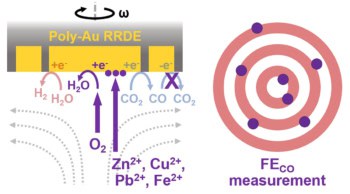Renewables are being promoted in Africa by various foreign aid programmes but, for good or ill, the emphasis in the EU is moving from donor aid to partnership trade, with the stimulation of private sector investment, local economic development and employment being the key focus. A somewhat different approach is being adopted by China. Dave Elliott looks at what has changed
Over the years, a lot of support has been provided for renewable energy projects in Africa, most recently under the UN Sustainable Energy for All programme, with the EU taking something of a lead. However, a shift in emphasis from development aid to economic partnership and trade is emerging, with private sector investment, local economic development and local enterprise seen as central, for example via Germany’s new Compact with Africa initiative, the so-called Marshall Plan for Africa.
The German Federal Ministry for Economic Cooperation and Development’s proposal, “Africa and Europe – A new partnership for development, peace and a better future” says that “we need to move away from the donor–recipient mentality that has predominated for many decades and shift towards an economic partnership based on initiative and ownership” and that “it’s not the governments that will create all the long-term employment opportunities that are needed, it’s the private sector. So it’s not subsidies that Africa needs so much as more private investment”.
In particular, it says “It is vital that Africa’s young people can see a future for themselves in Africa. The average age in Africa is 18. Soon Africa’s population will top 2 billion. That means that 20 million new jobs will be needed each year, in both urban and rural settings. Developing the necessary economic structures and creating new employment and training opportunities will be the central challenge. Africa’s young people also need contact and interaction with Europe. Europe must develop a strategy that allows for legal migration while combating irregular migration and people smuggling.”
You can see internal EU political issues at work here. German development minister Gerd Müller says “Germany and Europe have an interest to save people’s lives, to limit the effects of climate change and avoid ‘climate refugees’, to prevent mass migration and to help create a future for Africa’s youth.”
Local energy initiatives are seen as a key, with Germany’s energy co-operatives set to serve as a model. According to DW News, “The German Development Ministry is keen to use this expertise to help create similar groups in Africa. Over the next five years, the plan is to set up 100 partnerships in which German cooperatives can share their knowledge and experience with African community groups – in eight countries across the continent.”
The original US-led post Second World War Marshall plan was designed to aid economic recovery in Western Europe, although, not incidentally, it also helped consolidate US and Western economic and, some might say, political hegemony. In the new African version, the EU would be seeking a different relationship with Africa, less focused on aid and more on trade and local enterprise and employment creation. Its focus on markets might also be seen as a way to respond to doubts about the effectiveness of current aid programmes.
The EU’s new External Investment Plan adopts many of the same ideas as the German Marshall plan, calling for a shift from grants to private sector initiatives and partnerships.
However, there are different views. The Global Justice Now group says that “aid spending has been driven by notions of charity, national self-interest, and an ideological belief that free markets and multinational business can solve the world’s problems”, noting that “aid strategy seems to be increasingly about using aid money to benefit corporations rather than communities”. It claims that “Promoting free-market reforms and subsidizing the private sector not only ignores the fact that development should be about rights, equality and empowerment; it also ignores decades of lived experience about the best economic strategy for a developing economy.”
In this context, whether the German Marshall plan for Africa, aiming to create a new entrepreneurial and investment impetus, is the best approach, remains unclear. For example, in their new book Sustainable Energy for All: Innovation, Technology and Pro-Poor Green Transformations (Routledge), Ockwell and Byrne have argued that, although “the idea of private sector entrepreneurs driving innovation and technological change in developing countries seems to have captured the imagination of international policy-makers and donors” since it “fits in neatly with normative commitments to neo-liberal ways of doing development”, in reality “It is ill-conceived for the specific circumstances that exist in a wide range of different contexts: differences in relation to types of technologies; differences in social practices facilitated by technologies; differences in socio-cultural variations of these practices; differences in levels of technological capabilities existing in different countries, regions or communities; differences in politics and political economies, and so on.”
It seems clear that more attention has to be given to a wider socio-technical approach, less concerned with hardware and more concerned with social change processes. Indeed, that may be a requisite for technological success. Change is needed, but it must be both in terms of energy goals and in the ways in which projects are designed, funded and managed.
The German Marshall plan for Africa recognizes the need for widespread change, both within Africa and outside. Within Africa it says “corrupt elites still have too much influence”. They often “prefer to channel their money abroad instead of investing it locally” and “let multinationals exploit the country’s natural resources without creating domestic value chains”. Externally, it says that “Europe’s policy on Africa was for decades often guided by its own short-term economic and trade interests [while international corporations were] falling short in some areas, namely with regard to meeting local environmental and social standards and compliance regulations. This has resulted in Africa losing more than one trillion US dollars in the last 50 years that could have been used for sustainable development, with illicit financial flows currently amounting to 50 billion US dollars per year. 60% of losses are due to aggressive tax avoidance by multinational corporations.”
While some of this may be addressed by the sort of reforms it proposes, for example in terms of fair trade and combating illicit financial flows, arguably a somewhat more radical approach to aid and to technological and economic change is needed than just relying on economic partnerships and the creation of more favourable local investment opportunities.
Certainly there are many potential pitfalls with aid programmes, especially if they are top down and market led. As a recent study based on experience in sub-Saharan Africa concluded, “[Effective change] requires moving beyond notions of a cohesive state serving as rule-enforcer and transition manager. It also requires that technology be viewed more broadly, as not just as hardware that is transferred, but a set of practices and networks of expertise and enabling actors. And while markets have an important role to play as vehicles for achieving broader ends, they are not an end in themselves but rather one (and not the only) tool capable of shifting socio-technical systems in lower-carbon directions.”
That is very much the line also taken in Ockwell and Byrne’s book mentioned above and in the Pivot e-book that Terry Cook and I have just completed for Palgrave: Renewable Energy: from Europe to Africa, which should be out soon. Among other things, it looks at how the “jobs” metric has emerged as a leading EU development policy driver, focused on investment in renewables. As I note in my next post, providing interim subsidies for that may be sensible, but what matters is what kind of jobs.
The EU, of course, isn’t the only player. The new Palgrave book also looks at how China is taking over as a major player in energy project investment terms in Africa, adopting a somewhat different, more directly commercial, approach. Interestingly, President Trump has cut back on USAID generally, but has decided to leave Obama’s $7bn Power Africa programme untouched. That may be partly since it is mostly private sector led, but it may also reflect US fears about China’s growing influence in Africa. That opens up some interesting geopolitical and development issues. Whether any of these external interventions will actually help Africa remains to be seen, but given the huge range of social and economic problems it faces, it clearly does need help.



